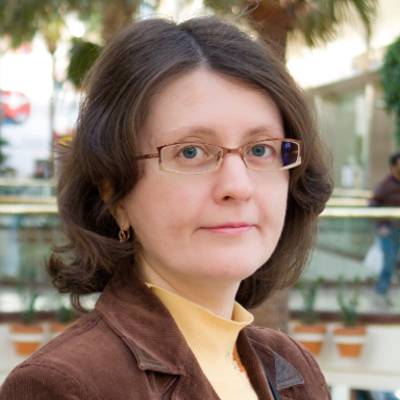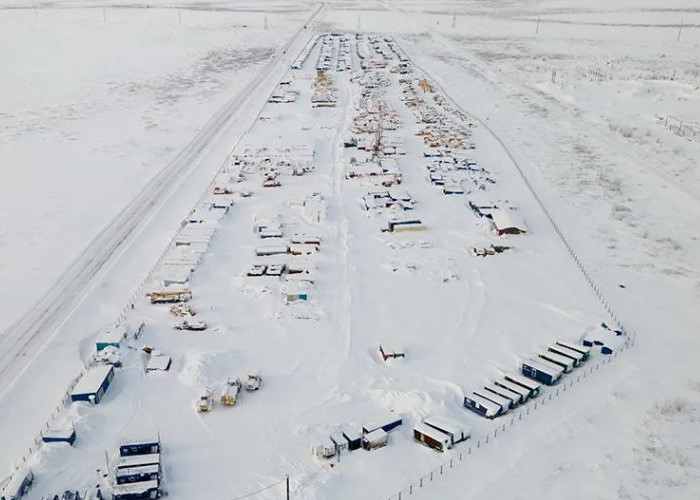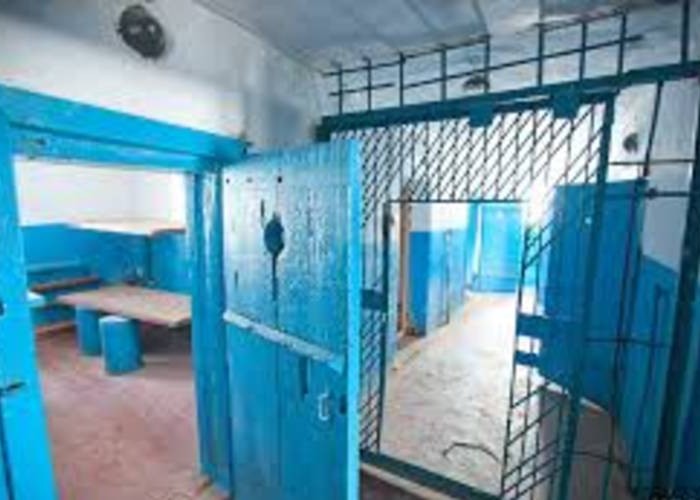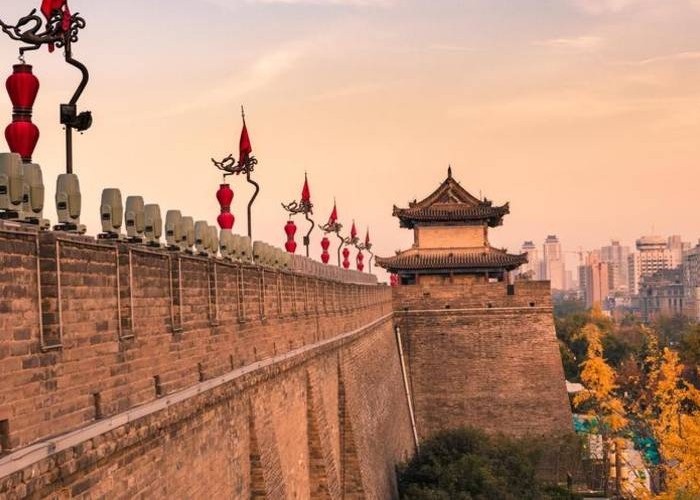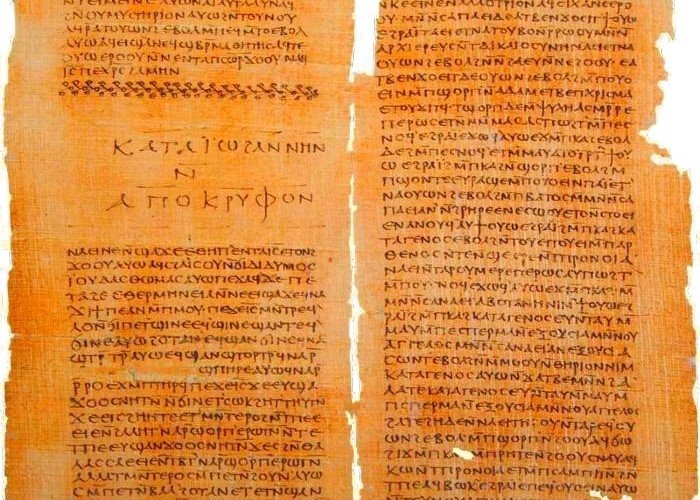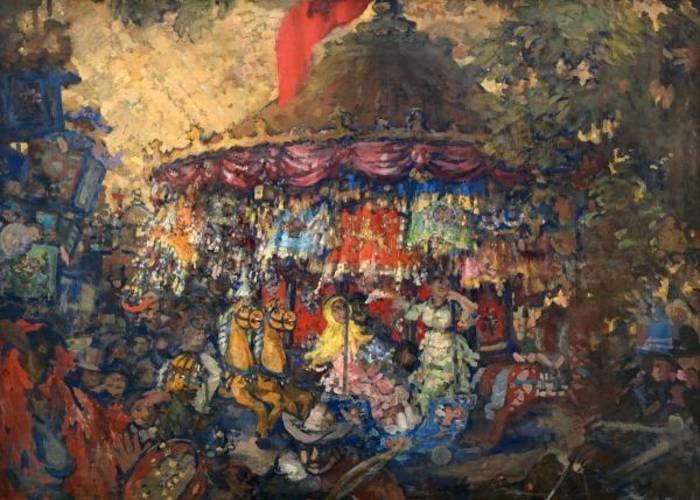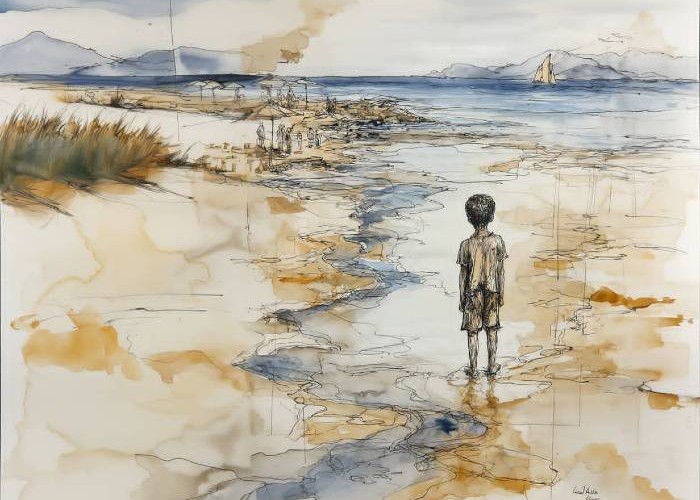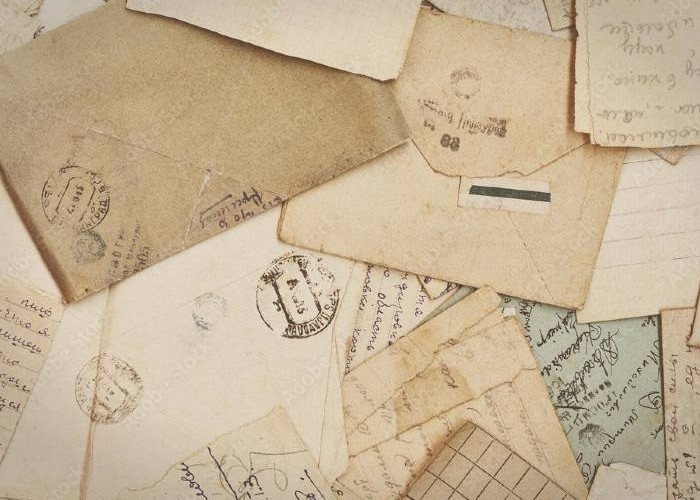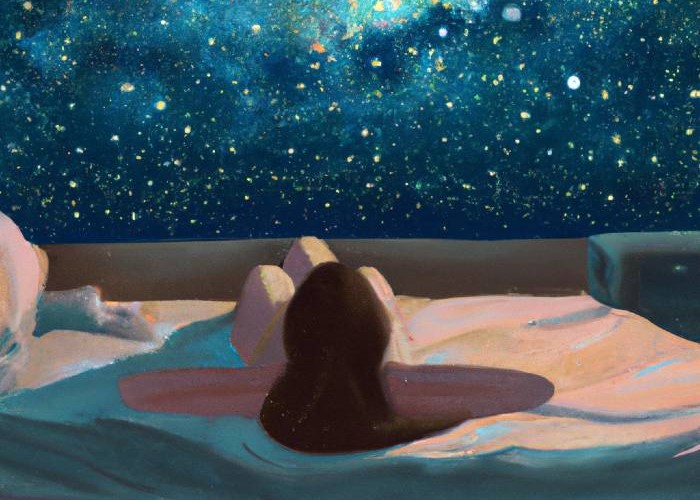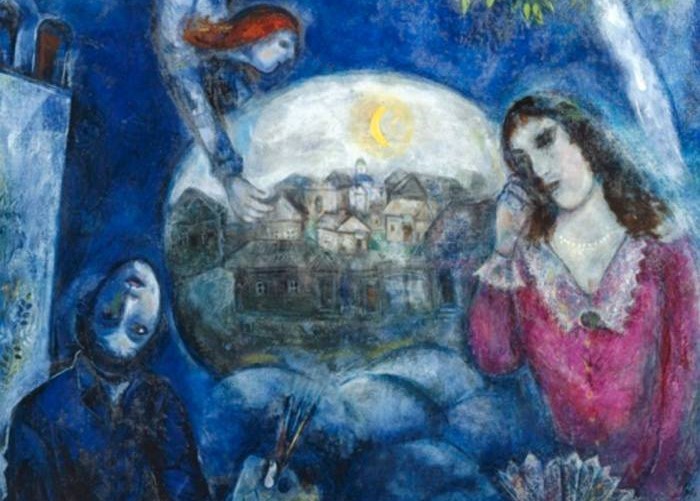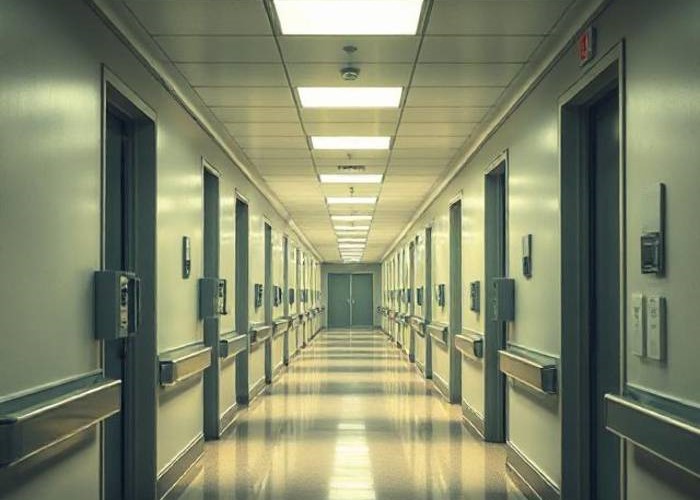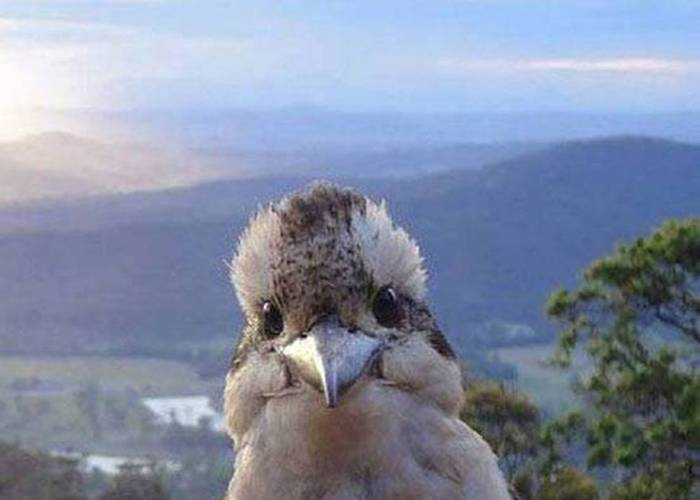A high female voice was vibrating slightly, like in an opera, sounding way too serious for the “Pussycat pussycat, where have you been?“ ditty. Its English was perfect, although the animation film was Russian – or rather it was Soviet, made long before he was born. The composer was Russian too, and yet the music was distinctly Tudoresque. That was the point, Vera had told him, and he agreed: the song was tastefully stylized. The film came to an end, and he took off his headphones. It was quiet in their train compartment; a fellow passenger must have been browsing the internet or staring out of the window.
“Already finished? Want me to find you something else to listen to?”
“No, thanks. Did you sleep at all?”
“I wish I could… The seats are comfy, but this didn’t help at all. Your lap must be numb from my head.”
“We’re nearly there.”
“The check-in is at 2 pm anyway. We’ll drop the luggage and then go chase the light.”
He memorized it well: the Danube splits Budapest into a “lower city” and an “upper city”. The rising sun will be illuminating the upper city at a low angle: Buda Castle, Fisherman’s Bastion – you can’t think of better conditions. Every photographer understands the importance of light. There’s hard light, direct light, cold light, contre-jour — so many words to describe the inconceivable, impalpable photons. And if you’re into landscape photography, the best time is sunrise and sunset: the so-called Golden hour. He was aware of it; in Vienna, at the beginning of the trip, he tolerated their early risings with good humor, saying “I didn’t come here to sleep”. But after a day or two, Vera’s enthusiasm rubbed onto him. She was so delighted with every good shot she made, and at the end of the day, at the hotel, she kept telling him passionately about the garden hedges casting long shadows on the gravel paths, and the gentle curves of marble statues – and, adding the final touch to the shots, she told him how stunning he himself looked. Playfully, he asked her, “What should I wear today?” He never did this before. On their walks, her frequent stops didn’t bother him; on the contrary, this pace gave him enough time to feel that he was traveling and that everything around him was different: the foreign language, the clattering of the horses’ hooves on the cobblestone pavement. He found it rather hard to use his cane on the cobblestones; instead, he took Vera’s arm, and the sweet smell of her sunscreen brought him back to Melbourne. It was the afternoon heat that made him doubt his decision (had it been really worth arguing with his mother’s “You’d better go to Japan if you want to see an exotic place”?). But at sunrise and sunset, he knew that he had done the right thing. He had to see the Old World, no matter how much time and money it would take. His family might have been mocking his urge to “see” it. But he didn’t care. No one would rob him of his memories. Sighted people have to take photos so they could hang them on a wall or share them on Instagram, otherwise, their memories would fade very quickly. That’s why he took it so seriously whenever Vera asked him to look after her camera bag while she stepped away, whether in a park, a café, or, like now, in a train compartment. He’d wrap his arm around the bag and hold the strap for security. Each night the photos had to be backed up into a cloud. He knew that real clouds look like cotton wool and imagined the photos being hugged by the soft wool — like Christmas tree decorations kept in a box. These frozen moments seemed to be fragile and precious for their own sake, not as stock images or artwork. That was their first journey as a couple: his very first adult decision.
The morning in Budapest was cool and grey. Vera said the sky might clear up later, so they left their luggage in storage and caught the underground to the city center. The station was crowded – he sensed it before Vera could see it and wondered aloud where all those people were going at such an early hour. The announcements on the train sounded weird as if someone was playing a record backward – he couldn’t understand a single word. The sleepless night gave him a headache but he tried to get over it without coffee: they wouldn’t want to waste a minute if the sun was up already. When they walked up the stairs and fresh air replaced the underground smell, he asked impatiently: “Cleared up?” Hearing her answer, he felt relief and almost forgot about his fatigue. There was a big empty space all around them – a city square, Vera said, and further ahead one could see a glimpse of a river between the tall buildings. A tram bell rang in the distance; they crossed the road. “Just look at this!” he heard, as his cane touched an obstacle that appeared to be a concrete barrier. Then there was a “zzzip!” of the camera bag. Silent photons flew from behind and, upon hitting the opposite riverbank, came back, so that Vera could catch them into the funnel of her lens. Enchanted, he listened to the clicks of the mirror which sliced the light like bread. Five shots; ten; and then, suddenly, it stopped.
“What, a cloud?”
“No, I just want to change the lens. There’s a bench over there… oh hang on, there’s a tactile model for you! Right here, that’s the hill, and here’s the Buda castle at the top of it. Give me your hand.”
His fingers touched a cold metal plate with valleys and bumps on it. The tactile image was hard to read, and he referred to the Braille text at the bottom. Fortunately, it was in English. The camera was clicking restlessly at his waist level as if Vera forgot she wanted to put a new lens on. A minute later she came closer and started explaining what part of the model represented the bridge and how the chairlift looked. Her hand was soft and her voice was cheerful, and this alone was worth coming for. Just to be together on the Danube promenade, facing the tree-covered hill with its waffle-textured castle walls.
By the time the cafes opened he was already starving, and the thin crepes soaked in chocolate tasted like the best thing he’d ever had. He felt the boost of energy and, to his surprise, managed to climb an endless spiral staircase without losing his breath. Vera took photos from the cathedral tower, and on the way back made a shot down the stairwell. She said it looked like a whirlpool or a mollusk shell – striking! We must print this photo to hang in our dining room, she added.
They walked some more, and now they were exhausted. Time for a dip said Vera, the light is becoming not so good now anyway. The underground train took them to the station called Szécheny Baths. He found this name funny in comparison with Vienna’s sober, symmetrical palaces and a concert hall, where even Vera was shushing him during the break when he tried to explore with his hands the finely sculptured drapery of the caryatids’ clothes. What else could he do in this imperial capital city whose monuments were so snobbish that he could barely reach the top of their plinths? Vienna was rather cold to him, and this made his surprise even more pronounced, when, after purchasing tickets and changing, they plunged into tropical heat. “The air was so thick you could cut it with a knife” – this expression came to his mind at once. He felt he couldn’t breathe, and Vera grabbed his hand and led him outside. He heard the sound of splashing water all around them. I wish I took the camera with me, Vera said, but I thought it might be out of place here, among naked people. “Fully naked?” he asked in confusion. She laughed: “Of course not! Just like you and me”. He wanted to know what she needed the camera for — was it a rainbow? He knew there was often a rainbow above fountains and that it might look like a glissando of colors. But Vera said: “I’ll tell you later. Let’s go to the pool”. They stepped into the water — it felt so hot that he got goosebumps. So, these are those famous spa baths, he thought sleepily; the Romans discovered these thermal springs, and later the Turks built the baths here. Vera’s voice was coming through the noise of his drowsy mind, vividly describing the grandeur of the bathhouse pavilions and the marble vases with flowers, while his body was melting in the water. He wouldn’t have minded staying here forever, like a coin in a wishing well, but Vera nudged him and pulled him out of the pool and into a building where they found many other pools, some cold and some hot, and a room filled with real snow to be rubbed onto one’s body. Vera was squeaking and he came round for a little while, just to fall asleep again on the way back. He couldn’t remember how they got to the station to pick up their luggage and then checked into the hotel. His consciousness slowly returned only when the alarm clock started making a squeaky noise. The soft, fluffy pillow was slightly scented. His bed was a single one: Vera always booked twin rooms for them and took photos of each room they stayed in; she said she did this for sentimental reasons but he couldn’t be fooled. Her outward prudence was, for sure, the sign of her weakness rather than strength, as though she was continuing that argument with his mother. He could still hear their voices in his head; they seemed to have forgotten that he was blind, not deaf, separated by the thin plaster wall of his parent’s house. “You shouldn’t be worried. I’m not one of those brainless chicks who would treat your son like a toy. I’m old enough to take care of him”. “A little too old for him, don’t you think?” His face was burning with anger, and he couldn’t help raising his voice when he had a chance to talk to Vera privately. “How can you humiliate yourself like this?” Her answer was muffled as if coming from underground: “We shouldn’t quarrel with her. You are still a minor”. Of course, he was aware of his age! “I know my rights. I can travel on my own, and you can book the same flight. She won’t be able to mess with it”. He has shrugged off his mother’s unfair reproaches as he did with his sissy milk-smelling nicknames. Now the only name he had was the one printed on his Australian passport.
“Wake up, sleepyhead, we must go. There’s just enough time for dinner before sunset”.
She was right: sunset is the best time to shoot the lower city and the Parliament building bristling with its sharp, fishbone-looking turrets. He had no idea why it was beautiful, but he never doubted Vera’s sense of aesthetics, so he got up at once. The hotel was in a quiet part of the city, which would be a benefit later at night but now required a train trip to the nearest restaurant. They changed and walked out. There was a smell of rain in the air – a watering truck just passed, Vera told him, adding: “The afternoon heat is so strong here, can you feel it? Just like our Aussie sun.” He was pleased she said “our sun”, although she’d lived in Australia for only six years. He wanted to take her hand but was hesitant to reach out – what if she wasn’t looking at him? Thus, they walked down to the underground station apart. The rush hour must have been over: the station felt empty. Wind gushed out of the tunnel, and the train screeched past. The doors hissed; he stepped forward and found the tactile lines on the floor with his cane. Somebody touched his shoulder, Vera said “Sorry” to someone. That treacherous gap at the edge of the platform – but she was sure he would find his way into the train without her help, so she called him when they were already inside: “I’m here.” The doors closed, and the train moved on.
A sudden gasp came through the roar of the train.
“What’s the matter?”
“They stole my camera!”
“Who did?”
“The guys who were here just now! But how on earth did they manage…”
He squeezed the handrail, losing the floor under his feet. “We must call the police!” Vera said in despair: no chance, they’re long gone. “We should do something! Let’s get out.” She didn’t respond, so he took her hand. He should have done that in the first place. Had they been holding hands, it wouldn’t have happened. That became even more obvious while he was listening to the mumbling explanations Vera has been giving to a nice man upstairs. “Yes, unfortunately, there are thieves here; they work as a team: someone distracts a victim, while the other gently pulls the camera out of her bag – they can tell by the labels there’s expensive stuff in there. When the owner finds out, it’s too late: the doors are shut between them. Do you have the serial number of your camera? On the other hand, it’s pointless, I’m afraid. I’m so sorry about what happened.” He was listening and couldn’t help thinking, over and over again: had they been holding hands, the thieves would have left them alone. “We will buy a new camera,” he said but stopped short as he realized they had barely scraped enough money together for the trip.
“It’s not the camera that really matters. It’s the photos. I haven’t downloaded them yet.”
The tone of her voice made him feel helpless. He never felt so destitute before; even if he got lost he’d use the GPS on his mobile or ask someone to show him the way. And now – who could tell him what to do? They were walking somewhere, surrounded by the traffic noise, and both his head and his heart were empty. Yet the empty stomach didn’t bother him at all; it was Vera who started complaining: “What sort of a city is this? Not a single eatery! Do you remember in Vienna they sold schnitzels at every corner?” He couldn’t believe she could feel like eating after what happened now. But when they finally found a fast food restaurant, he realized how hungry he was. They had a rather tasteless meal and went back to the hotel: Vera was in no mood to watch the sunset.
He woke up and spent some time lying still and trying to figure out whether it was morning or night. Someone’s feet stomped in the corridor, a car door slammed outside. He suddenly thought it was his eighteenth birthday. They didn’t make any special plans for that day; the only thing he’d wished for was to be far from his family, doing something new and exciting. But now he wasn’t sure they should be staying in Budapest any longer – what was the point if Vera was unhappy here? He couldn’t help sighing, and the next moment she whispered:
“Did you sleep well?”
“You’re already up?”
“Of course I am. It’s past eight. We fell asleep before it got dark, remember?”
He couldn’t tell by her voice if she was still upset. Her bed squeaked; something made a rustling sound. Then the warm fingers gently stroked his cheek and brushed off a lock of his hair from his forehead. She lightly touched his closed eyelids with her lips.
“Happy birthday.”
While he was getting ready, Vera announced they were going to have breakfast at Café Gerbeaud; after that, they would take a ferry ride on the river and then go to an amusement park – if he didn’t mind, of course. Sounds great, he said light-heartedly. He did his best to speak to her in this cheerful manner even when bouts of sadness overwhelmed him. On one occasion, when strolling in the city center, he heard a loud rap rhythm moving past them, and he wondered whether it was coming from a car driving close to them. Vera said it was a skater, carrying his music in a backpack. He imagined this pulsing backpack; it was filled with sounds just as Vera’s photo bag had been filled with memories. It was so heartless and unfair – stealing someone else’s memories, erasing them in someone’s mind as if it was nothing more than a memory card. Driven by a kind of mean stubbornness, he decided to stop memorizing their unfortunate trip. But Vera was trying so hard to please him on his birthday, it made him feel ashamed. She failed to hide her emotions just once. After the ferry ride, they landed at the pontoon and realized it was the same place where Vera made her first photos on the morning of their arrival. She led him to the tactile model and said quietly as if speaking to herself:
“That could have been my best shot. The light was so beautiful…”
“But you still have a camera on your phone! We could come here tomorrow morning and remake this shot, couldn’t we?”
He immediately regretted saying this. Vera’s disdain for “mobilography” wasn’t a secret for him, but why not try it as a last resort? Her voice was trembling with tears while she was explaining to him the technical details. It would be impossible to properly frame the picture of his hands lying on a cast iron model with a real castle in the background because the mobile camera was too “wide,” and yet too small to blur the background so that it looked just as she wanted it to. Vera was right: he had no idea how human vision really worked. The only thing he knew about eyes was that they were slimy and salty like pickled mushrooms.
“Sorry, I didn’t mean to upset you.”
“Neither did I,” said Vera and clutched his fingers rather awkwardly.
“Look, how about lunch? I’d have a goulash – aren’t we in Hungary after all?”
At lunch, she kept entertaining him, reading the Russian menu out loud: “Is it a machine translation? “King’s cancer meat”, literally!” He smiled and yet he knew it was meant to be forgotten. The spiral staircase, the rumbling of the ferry — there was nothing unique about them, nothing worth coming here from across the ocean. The sphinxes near the Opera house were merely plain copies of their peers in Vienna, and the cake at Café Gerbeaud tasted exactly like the one they had at Schönbrunn Palace. No, it didn’t, said Vera; and what about the thermal baths? Yes, he had to admit that was something they might remember; and also – the lazy afternoon at the hotel upon their return from the baths. They were lying, head to tail, on a narrow bed, and he felt her bare feet, with those little sores that had formed after her wearing tight sandals, and it filled him with affection. For the very first time, they had been walking together for hours and hours, they saw new things together; what was to happen with these precious memories?
By a grim coincidence, the amusement park they were heading to, was just a stone’s throw from Széchenyi Baths. Initially, Vera was planning to visit them again to take some photos but today they had neither a camera nor even swimsuits. Going for a dip after a hearty meal was a bad idea, and so was going on a carousel ride. They had a stroll around the lake – it’s beautiful, said Vera with subtle disappointment in her voice. Then they sat on the grass under a big tree; it was an oak – a common tree in Europe, as well as in Russia, Vera added. It was introduced to other parts of the world, although I hardly ever saw oaks in Aussie parks. He noticed she didn’t say “our parks” this time; he was going to ask her why when suddenly he heard a screeching sound right above his head. It started with a crescendo of cackling and then burst into a hysterical laugh. So familiar and yet so unexpected it was that he opened his mouth in astonishment and couldn’t move until it ceased.
“Did you hear what I did?” asked Vera.
“I guess so…”
“So we’re not losing our minds, are we?”
Before he could respond, Vera shushed him and grabbed his arm, breathing in his ear: “It flew on the lawn… A Kookaburra – what on earth is it doing here?” “What, a real one?” “Well, I’m not hallucinating…” “Take a shot, quick!” he whispered, “with your phone! They won’t believe us if you don’t!” A moment later, he heard a click, then another. A female voice said something to Vera, and she responded cheerfully: “I know these birds, we are from Australia. But how did it get here?” “There’s a zoo just around the corner. It escaped, and now go catch it”. The bird responded with such sarcastic laughter that he couldn’t help joining it. “What’s so funny?” “It’ll just… You know, it’ll be the only photo you have from Budapest. Remember the cat that went to London to see the Queen?” Vera didn’t answer. He had no idea what expression her face had at the moment – was she smiling or frowning, or perhaps trying to figure out what he was talking about? There was only one thing he knew for sure: the Kookaburra sitting on an oak tree at the center of Budapest would remain the most memorable experience they both had in the Old World.
Self-translation from Russian
